Marine grade aluminum plates
Haomei Aluminum provides a variety of marine grade aluminum plates, and the products have ABS, BV, CCS, DNV, KR, LR, NK, RINA and other certifications.
-
5754 aluminum is a medium-to-high strength alloy with excellent weldability, a low tendency for welding cracks, and high strength in both the weld joint and the crystalline metal.
-
5083 is basically used to manufacture ship hulls because of its relatively high strength and good corrosion resistance.
-
5052 marine aluminum alloy is a high-strength, corrosion-resistant, easy-to-process and weld aluminum alloy, which is widely used in the manufacture of ships and marine structures.
-
5086 aluminum alloy is irreplaceable in hull and deck applications in marine operating environments due to its unique seawater corrosion resistance, excellent low-temperature toughness, and good weldability.
-
5059 aluminum is both a high-magnesium and high-zinc alloy, offering excellent corrosion resistance and fire resistance.
-
5383 aluminum offers excellent fatigue resistance and crack resistance, and its unique properties make it irreplaceable in the design of high-speed vessels and marine structures that require long-term fatigue resistance.
-
5456 aluminum, with its unique high strength, exceptional fatigue resistance, and resistance to stress corrosion cracking, is irreplaceable in heavy-duty hull structures.
Marine-grade aluminum is an ideal material for building offshore vessels and equipment exposed to water and saltwater environments due to its excellent corrosion resistance, strength, light weight and processing performance. It is widely used in various marine and maritime engineering fields.
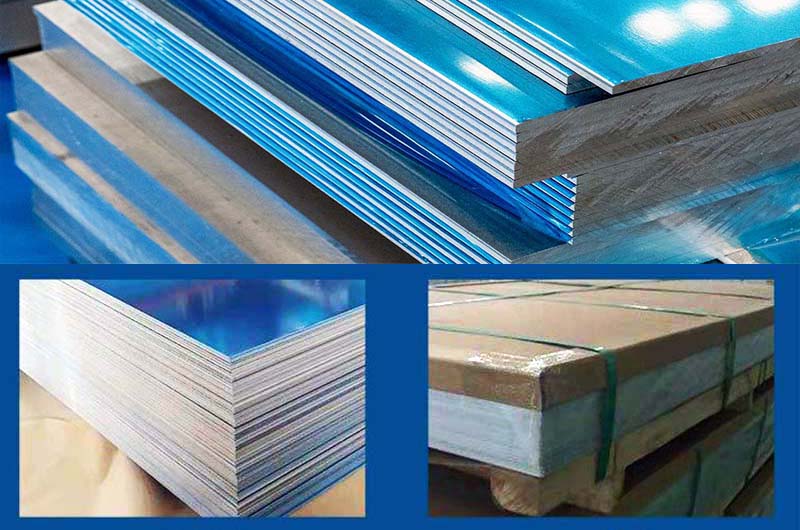
Selection of Marine Aluminum Plates
Marine aluminum plates are specially designed aluminum alloy materials for shipbuilding. Depending on the different usage environments and performance requirements, they are mainly divided into two categories: vessels operating in freshwater and vessels operating in saltwater.
The selection of marine aluminum plates depends on the usage environment, strength requirements, and corrosion resistance. For freshwater environments, 5052 aluminum plates are suitable, while for saltwater environments, large vessels commonly use 5083, 5086, and 5059 aluminum plates.
The corrosion in freshwater is not as strong as that in saltwater, so generally, small freshwater boats use 5052 aluminum plates, which are a type of rust-resistant aluminum. However, they cannot meet the needs of saltwater environments. The strength of 5052 aluminum plates does not reach the requirements for large yachts and vessels, making them suitable only for small freshwater boats.
Large vessels typically use 5083 aluminum plates and 5086 aluminum plates, with a small portion of specialized vessels using 5059 aluminum plates. All three alloys are high-performance alloys with excellent corrosion resistance, and their strength is significantly higher than that of 5052 aluminum plates.
Aluminum Plates for Freshwater Environments
In freshwater environments, the corrosion of aluminum plates is relatively low, and the commonly used material is 5052 aluminum plates. 5052 aluminum plates are a type of rust-resistant aluminum alloy, possessing good corrosion resistance and forming performance, making them suitable for small freshwater vessels. Although they have certain strength, they may not meet the strength requirements for large yachts or ships, thus making them more suitable for the construction of small freshwater vessels.
Aluminum Plates for Saltwater Environments
In saltwater environments, the selection of aluminum plates is particularly important due to the much higher corrosion of saltwater, which requires the use of higher-performance aluminum alloys. The aluminum plates suitable for saltwater environments mainly include:
- 5083 Aluminum Plate: This aluminum alloy is known for its exceptional corrosion resistance and good weldability, making it suitable for large vessels and marine engineering, capable of withstanding harsh marine environments.
- 5086 Aluminum Plate: Similar to the 5083 aluminum plate, the 5086 aluminum plate also possesses good corrosion resistance and strength, commonly used for hulls, side shells, and other important structural manufacturing, suitable for carrying larger loads.
- 5059 Aluminum Plate: Although used less frequently, the 5059 aluminum plate is a special aluminum alloy with extremely high strength and excellent corrosion resistance, making it suitable for specific high-demand vessels.
What is marine-grade aluminum?
Because salt water and humid conditions in marine environments are highly corrosive to ordinary metals, marine-grade aluminum is enhanced by alloying and special treatments to enhance its corrosion resistance. For example, when aluminum is alloyed with other metals such as magnesium, its corrosion resistance will be higher and it can withstand continuous contact with water and saltwater. These specially treated aluminum alloys are called marine-grade aluminum.
Common marine-grade aluminum alloys include the 5000 series (such as 5052, 5083) and the 6000 series (such as 6061, 6082).
Ship plate is a material used to make ship hulls, usually made of steel, aluminum alloy, fiberglass and other materials. Among them, aluminum plate is one of the commonly used materials, and its composition and performance have an important impact on the strength, corrosion resistance and service life of the hull.
Aluminum alloy ship plate is a lightweight, high-strength hull material mainly composed of aluminum, magnesium, silicon and other elements. The advantages of aluminum alloy ship plates include light weight, good corrosion resistance, and good thermal conductivity. Its disadvantages are higher price and poor impact resistance.
Haomei Aluminum provides a variety of marine-grade aluminum plates. The products have ABS, BV, CCS, DNV, KR, LR, NK, RINA and other certifications, meeting the requirements of light weight, high strength, corrosion resistance, weather resistance, rust prevention, and welding in the marine field.
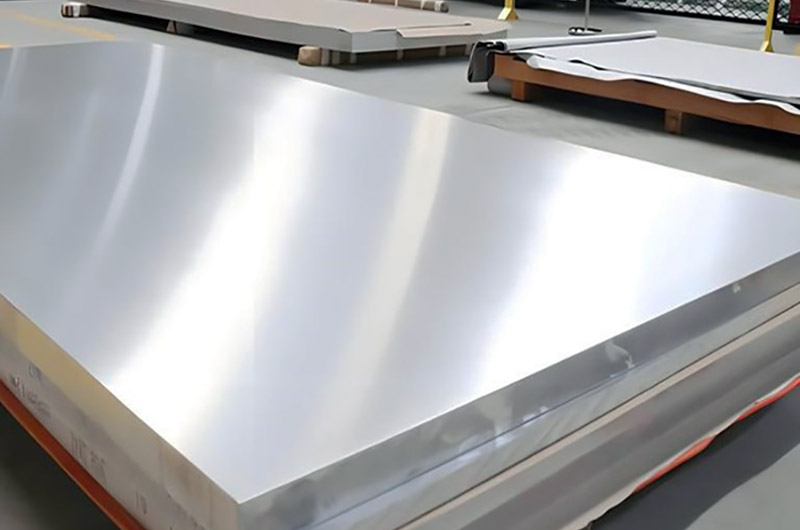
Haomei Aluminum marine aluminum plate specifications
| Size | 4x8, 4x10, 5x10 |
| Thickness | Commonly used plates include sheet with a thickness of over 1.6mm and plate with a thickness of over 30mm. 2mm, 2.5mm, 3mm, 3.5mm, 4mm, 5mm, 6mm, 10mm thick, etc. |
| Width | To reduce welding, 2.0m wide aluminum plates are often used, and 2.5m wide aluminum plates are often used for large ships |
| Length | Generally, 6m |
| Surface treatment | Anodizing, color coating, mirror coated marine aluminum plates, etc. |
| Packaging | Wooden pallets and boxes are used as standard sea or seaworthy packaging with waterproof film inside, and can also be packaged according to customer requirements. |
| Certification | ABS, BV, CCS, DNV, KR, LR, NK, RINA |
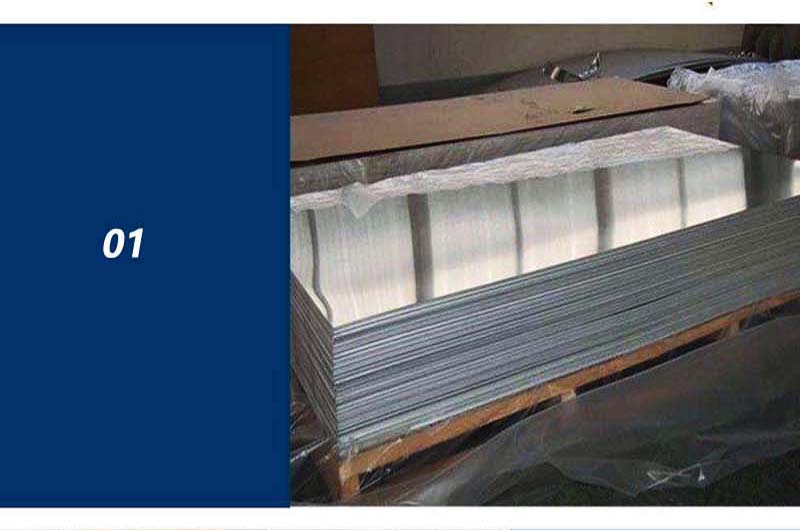
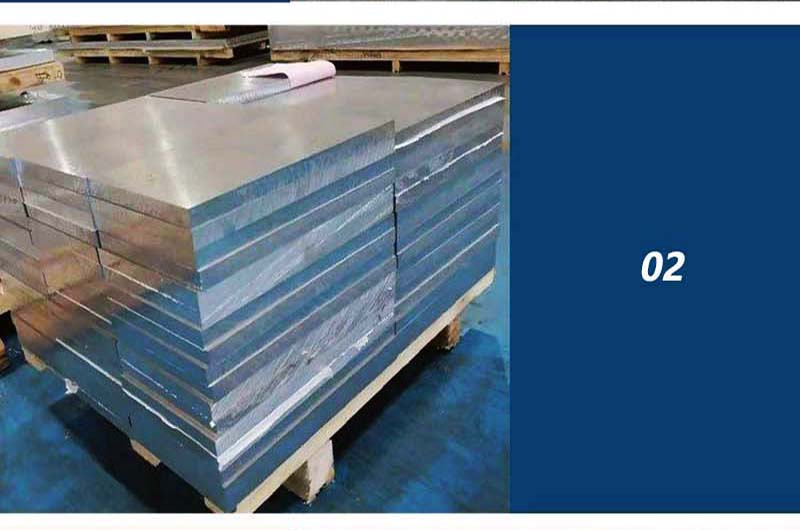

Main Alloy of Marine Grade Aluminum Plate Sheet
Marine aluminum alloys can be divided into deformed aluminum alloys and cast aluminum alloys according to different manufacturing processes. Since marine aluminum alloys have special requirements for strength, corrosion resistance, weldability, etc., aluminum-magnesium alloys are mostly used for marine aluminum alloys. , aluminum-magnesium-silicon alloys and aluminum-zinc-magnesium alloys, among which aluminum-magnesium alloys are the most widely used on ships.
| 5052 Marine Grade Aluminum Plate Sheet | 5053 Marine Grade Aluminum Plate Sheet |
| 5086 Marine Grade Aluminum Plate Sheet | 5454 Marine Grade Aluminum Plate Sheet |
| 5456 Marine Grade Aluminum Plate Sheet | 6061 Marine Grade Aluminum |
| 1050 Marine Grade Aluminum Plate | 1200 Marine Grade Aluminum Plate |
| 3003 Marine Grade Aluminum Plate | 3203 Marine Grade Aluminum Plate |
| 5059 Marine Grade Aluminum Plate Sheet | 5754 Marine Grade Aluminum Plate Sheet |
| 5383 Marine Grade Aluminum Plate Sheet | 6082 Marine Grade Aluminum |
| 5154 Marine Grade Aluminum Plate Sheet | 6063 Marine Grade Aluminum |
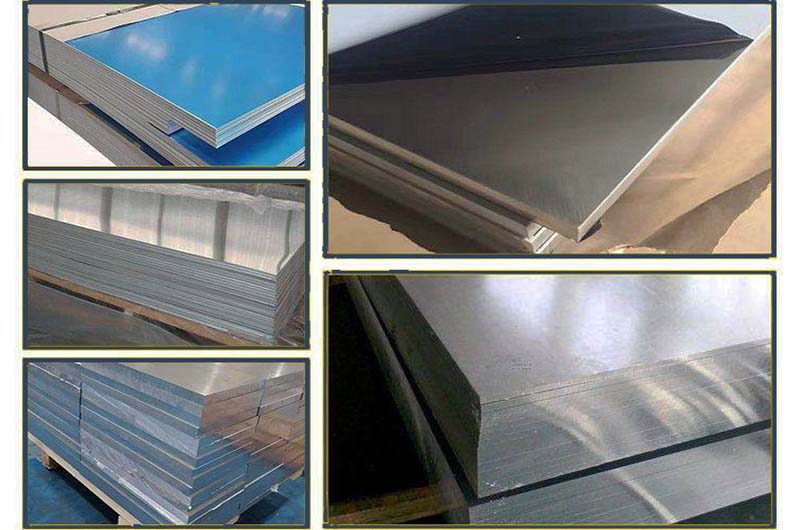
Choosing the right aluminum material for ship applications
Although aluminum may not be the best material for continuous or permanent immersion, it is a popular metal choice when building docks, ladders, pontoons, boats and boat trailers due to its high strength and light weight. Aluminum forms an aluminum oxide coating when exposed to water and air, which helps protect the metal from further corrosion.
Aluminum alloys for ships are mainly 5 series and 6 series aluminum alloys. Depending on the location, the aluminum alloy materials used are also different.
Aluminum alloy is used for the hull structure and aluminum alloy for outfitting. The aluminum alloys used for the hull structure are mainly 5083, 5086 and 5456.
The 6000 series alloy is mainly used for the superstructure of ships due to intergranular corrosion in seawater.
Outfitting aluminum alloy mainly uses extruded profiles.
The strength and process performance of 7000 series alloys after heat treatment are superior to those of 5000 series alloys. They are mainly used in ship superstructures, such as extruded structures, armor plates, etc. However, the disadvantage of 7000 alloys is poor stress corrosion resistance, which limits its use. The range of use of series alloys.
The aluminum alloy profile commonly used for portholes in ship superstructures is 6063 aluminum alloy
Masts and gangways often use 6063 and 6061 aluminum alloy profiles
The main materials of the deck and hull are 5454, 5052 and 5083 aluminum alloy plates.
| Use | Alloy | Product Type |
| Ship side, bottom outer plating | 5083,5086,5456,5052 | plate, sheet, profile |
| keel | 5083 | plate, sheet |
| rib cage | 5083 | Profile, plate, sheet |
| ribs, next door | 5083,6061 | plate, sheet |
| Engine pedestal | 5083 | plate, sheet |
| deck | 5052,5083,5086,5456,5454,7039 | plate, sheet, profile |
| wheelhouse | 5083,6N01,5052 | plate, sheet, profile |
| bulwark | 5083 | plate, sheet, profile |
| chimney | 5083,5052 | plate, sheet |
| Roof and side panels for offshore vessel containers | 3003,3004,5052 | plate, sheet |
| porthole | 5052,5083,6063,AC7A | Profiles, castings |
| gangway | 5052,5083,6063,6061 | profile |
| mast | 5052,5083,6063,6061 | tube, rod, profile |
| Structural materials for offshore vessel containers | 6063,6061,7003 | profile |
| Engines and other marine components | AC4A,AC4C,AC4CH,AC8A | casting |
Marine aluminum alloy product types
Marine aluminum alloys can be divided into plates, profiles, tubes, rods, forgings, and castings according to product types. The company's current aluminum alloy product categories are mainly plates and strips.
Aluminum for Hulls
-
5052 Marine Aluminum Products
Plates: They have good formability and weldability, suitable for hull structures.
Profiles: Used for manufacturing hull frames and support structures.
Pipes: Suitable for conveying systems and structural supports.
Rods: Used for making connectors and mechanical parts.
-
5083 Marine Aluminum Products
Plates: With excellent corrosion resistance and strength, they are widely used in hulls.
Profiles: Used for complex hull structural components.
Pipes: Suitable for high-pressure systems and structural supports.
Rods: Used for components requiring high strength.
-
5086 Marine Aluminum Products
Plates: They have good corrosion resistance, suitable for underwater parts.
Profiles: Used for hull frames and structural components.
-
6061 Marine Aluminum Products
Profiles: Widely used in hulls and internal structures.
Pipes: Suitable for pipelines and support structures.
Rods: Used for manufacturing various mechanical parts and connectors.
Aluminum for Outfitting
-
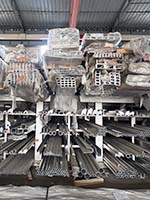 1050 Marine Aluminum Products
1050 Marine Aluminum ProductsPlates: Suitable for decorative and lightweight structures.
Profiles: Used for outfitting components and frame structures.
Pipes: Used for lightweight piping systems.
Rods: Used for manufacturing small connectors and components.
-
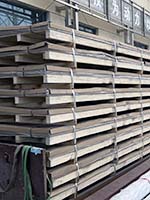 1200 Marine Aluminum Products
1200 Marine Aluminum ProductsPlates: They have good processing performance and are suitable for outfitting and decoration.
Profiles: Used for various outfitting structures.
Pipes: Suitable for lightweight piping systems.
Rods: Used for manufacturing small parts and connectors.
-
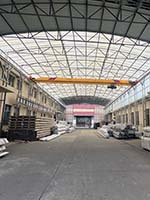 3203 Marine Aluminum Products
3203 Marine Aluminum ProductsPlates: Suitable for various outfitting applications.
Profiles: Used for complex outfitting structures.
Pipes: Used for lightweight piping and conveying systems.
-
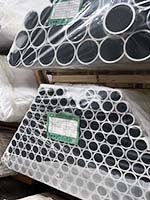 6063 Marine Aluminum Products
6063 Marine Aluminum ProductsProfiles: Widely used in outfitting and decorative components.
Pipes: Suitable for lightweight structures and piping systems.
Note:
- Outfitting also uses 5052 alloy, with varieties including plates, tubes and rods
- 5083, 5086 and 6N01 alloys can produce wide and thin-walled extruded profiles
- The thickness of the plate is determined by the hull structure, ship specifications and usage parts. From the perspective of lightweighting the hull, thin plates are generally used as much as possible, but the depth of corrosion of the plate during use should also be considered. Commonly used plates are: Thin plates above 1.6mm and thick plates above 30mm. In order to reduce welding, 2.0m wide aluminum plates are often used. Large ships use 2.5m wide aluminum plates. The length is generally 6m. Some plates with special specifications are also used according to shipyard contracts. To prevent slipping, the deck is patterned.
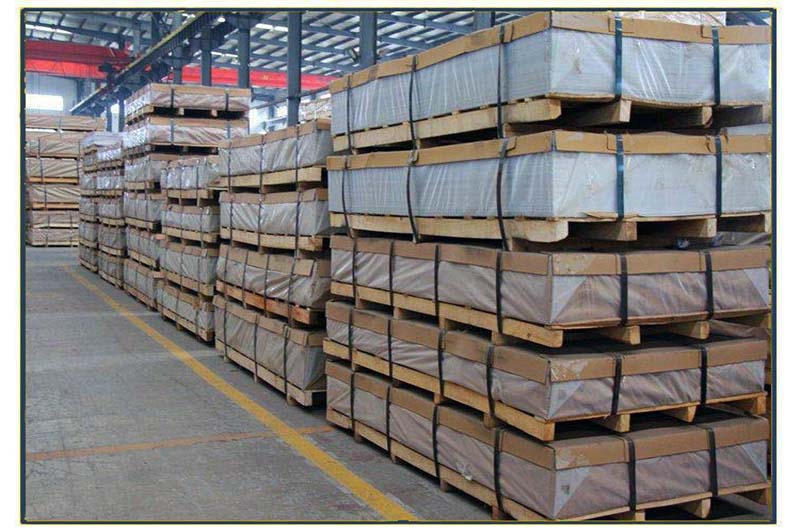
Aluminum alloy ship plate applications
Marine Grade Aluminum Plate Sheet for work boat
Aluminum work boats require less maintenance, last longer and travel faster. In general, the excellent resistance to marine weather, especially seawater corrosion resistance, of 5000 and 6000 series aluminum-magnesium alloys has been recognized by everyone.
Marine Grade Aluminum Plate Sheet for LNG (liquefied natural gas) cargo ships
LNG is made by liquefying natural gas at low temperatures below -162°C. Therefore, metals with good low-temperature properties are needed in the storage and transportation of LNG. Aluminum alloy, nickel steel and stainless steel are generally used, and aluminum alloy has good resistance to seawater corrosion, so aluminum alloys with light weight and good welding properties tend to be used.
Marine Grade Aluminum Plate Sheet for aircraft carrier
Application areas of Marine Grade Aluminum Plate Sheet on aircraft carriers: part of the takeoff and landing decks, huge elevators, a large number of piping systems, porthole covers, chandeliers, doors, cabin partitions, cabin decoration, furniture, kitchen equipment and some auxiliary engines, etc. .
Marine Grade Aluminum Alloy: Mostly 5466 thick plate and 5086 thin plate. After replacing steel with aluminum components, unnecessary weight is saved. Some of the total aluminum usage is used to make all cabinets, furniture, beds and related equipment below the deck. The aluminum alloy materials used include 6061 alloy, 5052 alloy, etc.
Marine Grade Aluminum Plate Sheet for Hydrofoil
5456 alloy is selected as the hull material. Because it has the highest strength performance of welded joints.
Conditions 5456-H116 and 5456-H117 are used for plates.
State 5456-H111 is used for extrusions.
Choose 5356 alloy wire with higher crack resistance for welding.
Marine Grade Aluminum Plate Sheet for hovercraft
When selecting materials, choose 5456-H116 or 5456-H117, the welding parts should use the high-strength Al-Cu-Mn 2219 alloy, and the non-weld parts should use the high-strength Al-Zn-Mg-Cu system 7075-T73 alloy.
5456-H116 or 5456-H117 alloy has finally been rated as the best material for the main shell structure due to its advantages in mechanical properties, corrosion resistance and cost. 5456-H112 alloy is selected as the extruded part because its specific strength is 19% greater than that of 5086-H112.
Marine Grade Aluminum Plate Sheet for speedboats and high-speed boats
For speedboat hull materials and high-speed boat hull materials, it is generally required to reduce the weight as much as possible while ensuring sufficient strength and stiffness, and the materials are required to have good seawater corrosion resistance and weldability.
Marine aluminum plates are also used in the following hulls
- Marine Grade Aluminum Plate Sheet for Catamarans
- Marine Grade Aluminum Plate Sheet for WIGV
What are the advantages of aluminum for ships?
Due to aluminum's low density, high strength, high rigidity, corrosion resistance and weldability, it provides a good choice for building ships with strict weight requirements. Ship designers use aluminum to build ships and use steel or other composite materials. Compared with the built ships, the weight is reduced by 15% to 20%.
Aluminum has low density and light weight, which can reduce ship weight, increase speed, and reduce fuel consumption, thereby obtaining a longer cruising range with the same amount of fuel.
- Strong corrosion resistance, the ship must be immersed in water for a long time, especially sea water with high salt content and high corrosiveness. The surface of aluminum alloy can produce a natural oxide film to resist external corrosion, and the aluminum alloy after anodization can remain very stable in seawater. This in turn increases the service life of the ship.
- Excellent processing and formability, easy to carry out various forms of processing such as cutting, stamping, cold bending, forming and cutting, etc., to meet the streamlined design of the hull.
- Excellent welding performance, aluminum alloy has good welding crack resistance, and the performance of welded joints after welding is not much different, so it is very suitable for shipbuilding welding and has greater safety.
- Good low temperature resistance and can withstand temperatures of minus 200°C and severe weather.
- The elastic modulus is small, the ability to absorb impact stress is large, and it has good safety.
- Aluminum waste is easy to recover and can be recycled.
- No low-temperature brittleness, suitable for low-temperature equipment.
- Because it is non-magnetic, the compass will not be affected. The all-aluminum boat can avoid mine attacks and is suitable for use as a minesweeper.
- There is no insect damage, dry deformation, no burning, and it is safer in case of fire.
From the perspective of ship designers, ships made of aluminum alloys can achieve higher speeds and longer service life. These advantages of aluminum alloys have led to rapid development in the application of aluminum alloys. The shipbuilding industry is aluminum. Provides a broad application market.
Marine aluminum plate requirements
Marine aluminum plates must be easy to form, not crack, and still meet strength and corrosion resistance requirements after processing. Commonly used alloys include 5052, 5252, 5454, 5754, 5083, 5086, 5059, etc.
Easy to form
Marine aluminum plates need to have good plasticity and deformation capabilities so that they can be easily formed, bent and stamped during processing to meet the complex shape requirements of the hull.
Aluminum alloys usually have good plasticity, and their formability can be further improved by controlling the alloy composition and processing technology.
No cracking
Marine aluminum plates must not have cracks during the forming and processing processes, otherwise the integrity and service life of the hull will be affected.
In order to avoid cracking, the composition and processing parameters of aluminum alloys need to be strictly controlled to ensure that excessive stress concentration or abnormal grain structure does not occur during the processing, thereby ensuring the stable quality of marine aluminum plates.
Strength requirements
Marine aluminum plates need to have sufficient strength to withstand various loads during navigation and challenges from the external environment, such as waves, wind, etc.
By rationally designing the composition and processing technology of aluminum alloys, the strength requirements of marine aluminum plates can be achieved while maintaining its lightweight advantages and improving the ship's cargo carrying capacity and fuel efficiency.
Corrosion resistance requirements
Marine aluminum plates need to have good corrosion resistance to cope with erosion from harsh environments such as sea water and sea air, and extend the service life of the hull.
Aluminum alloy itself has good corrosion resistance, but certain protective measures still need to be taken in the marine environment, such as applying anti-corrosion coatings or selecting aluminum alloy materials with good corrosion resistance.
Aluminum alloy ship plate manufacturing process
The manufacturing process of aluminum alloy ship plates includes casting and extrusion. The low processing cost of aluminum, coupled with the outstanding physical properties of aluminum alloy, makes it more economical to manufacture ships with aluminum alloy.
Casting process
- The casting process is a traditional metal processing method that melts aluminum into a liquid state, then pours it into a pre-designed mold, and solidifies through cooling to form a ship plate in the desired shape.
- This process is suitable for producing ship plates with complex shapes and large sizes, and can meet the requirements of various hull structures.
- In the casting process, the grain structure of the aluminum alloy can be adjusted by controlling the cooling rate and temperature, thereby changing the physical properties of the ship plate and giving it better strength and corrosion resistance.
Extrusion process
- The extrusion process is a process in which aluminum ingots are processed into aluminum alloy profiles of a certain shape through an extrusion machine, and then cut into ship plates.
- This process is suitable for producing long ship plates with simple cross-sections, and has the advantages of high production efficiency and low cost.
- The extrusion process can adjust the parameters of the extrusion machine as needed, such as extrusion speed, extrusion temperature, and die design, to meet the needs of ship plates of different sizes and shapes.
In general, the casting process is suitable for producing ship plates with complex shapes and large sizes, while the extrusion process is suitable for producing ship plates with simple shapes and small sizes. The choice of aluminum alloy ship plate manufacturing process depends on factors such as hull design requirements, production cost and production efficiency.
The different compositions and properties of shipboard materials determine their use and service life. When selecting ship plate materials, comprehensive considerations need to be made based on actual needs and use environment. At the same time, in order to ensure the quality and performance of ship plates, strict testing and quality control are also required.
Cast and Forged marine grade aluminum alloys
Aluminum alloys are generally classified based on the main alloying elements added to the aluminum and the alloy's ability to respond to mechanical and heat treatments.
Cast aluminum alloys are produced by a process in which molten metal liquid is poured into a mold of a specific shape and then cooled.
Wrought aluminum alloys are made by rolling, forging, or mechanically deforming solid metal into the desired shape.
Marine grade wrought aluminum alloys generally include aluminum-magnesium-silicon alloys and aluminum-magnesium alloys. These wrought aluminum alloys are often used in docks, ship lifts, structural shipbuilding, and other offshore structural applications.
Cast aluminum alloys are suitable for many different types of marine applications because the casting process can produce a variety of complex shapes such as structural components, brackets, internal fittings, and ship superstructures. These alloys are usually aluminum-silicon alloys or aluminum-magnesium alloys.
Marine-grade aluminum Maintenance and Care
To ensure a long service life for aluminum products in near-water applications, proper maintenance and care must be performed:
Regular cleaning: Clean aluminum products with fresh water regularly, especially in seawater environments, to remove salt and other corrosive substances.
Inspect coating: Ensure the integrity of the aluminum oxide protective layer and perform surface treatment or coating repair when necessary.
Avoid galvanic corrosion: Avoid direct contact between aluminum products and other metals, and use electrical insulation to separate them when necessary to prevent galvanic corrosion.
With proper maintenance and care, these aluminum grades can ensure a long service life for items manufactured for marine purposes.
